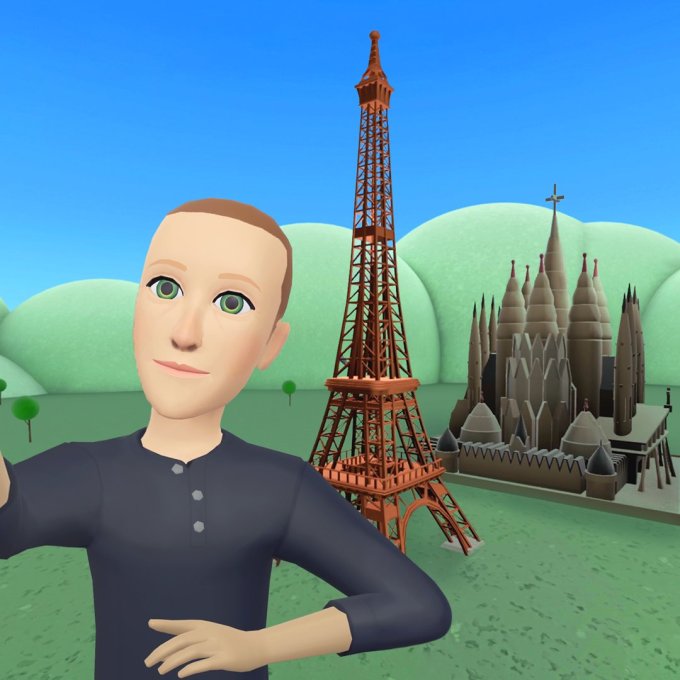In an effort to expand its social platform for virtual reality, Horizon Worlds, Meta is launching it in France and Spain today — building on the existing three markets including the U.S., Canada, and the UK where it was already available. In a Facebook post, Mark Zuckerberg announced the launch with an unappealing photo and noted that it plans to expand the platform to more countries.

Image Credits: Mark Zuckerberg
Meta launched Horizon Worlds for all users above 18 years of age in the U.S. and Canada last year and made it available for users in the UK in June. In April, it also said that it is working on a web version to let people experience virtual worlds without owning a VR headset.
Over the last few months, the company has also added safety features like controls for voice chat and 4-foot personal boundaries around avatars in the Horizon Worlds platform.
Horizon Worlds is just one of the VR social apps offered by Meta, which has a vision of building a metaverse consisting of many such virtual worlds. The company expects that users will spend more time hanging out with their friends in these virtual spaces, and even spend money on in-app goods. But the company’s still very far away from achieving any of this.
Since its rebranding from Facebook to Meta, the company has poured a lot of money into building the metaverse in the last few quarters. The firm experienced its first-ever quarterly revenue decline in Q2 2022 but has been bullish on its metaverse bet paying off. In February, Meta said the Horizon World app had more than 300,000 monthly users.
“This is obviously a very expensive undertaking over the next several years. But as the metaverse becomes more important in every part of how we live from our social platforms, to entertainment, to work, and education and commerce, I’m confident that we’re going to be glad that we played an important role in building this,” Zuckerberg said during the quarterly earnings call for Q2 2022.
In April, Zuckerberg said the company lost $3 billion because of metaverse-building but he was hopeful that it’ll all come to fruition by 2030.

